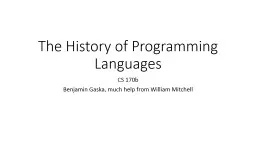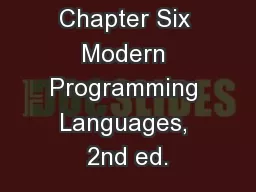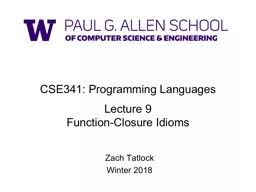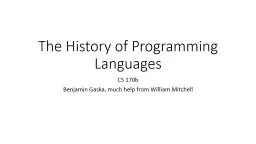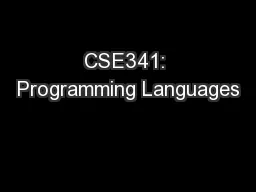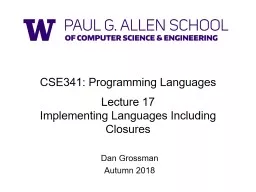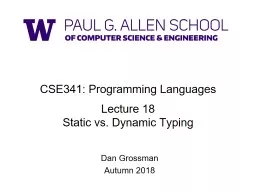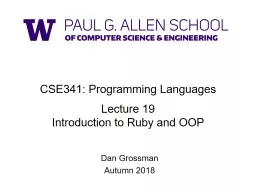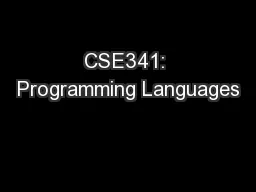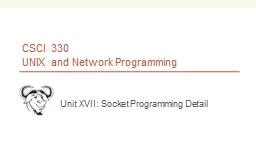PPT-CMSC 330: Organization of Programming Languages
Author : myesha-ticknor | Published Date : 2016-03-19
ContextFree Grammars Ambiguity CMSC 330 2 Review Why should we study CFGs What are the four parts of a CFG How do we tell if a string is accepted by a CFG What
Presentation Embed Code
Download Presentation
Download Presentation The PPT/PDF document "CMSC 330: Organization of Programming L..." is the property of its rightful owner. Permission is granted to download and print the materials on this website for personal, non-commercial use only, and to display it on your personal computer provided you do not modify the materials and that you retain all copyright notices contained in the materials. By downloading content from our website, you accept the terms of this agreement.
CMSC 330: Organization of Programming Languages: Transcript
Download Rules Of Document
"CMSC 330: Organization of Programming Languages"The content belongs to its owner. You may download and print it for personal use, without modification, and keep all copyright notices. By downloading, you agree to these terms.
Related Documents




